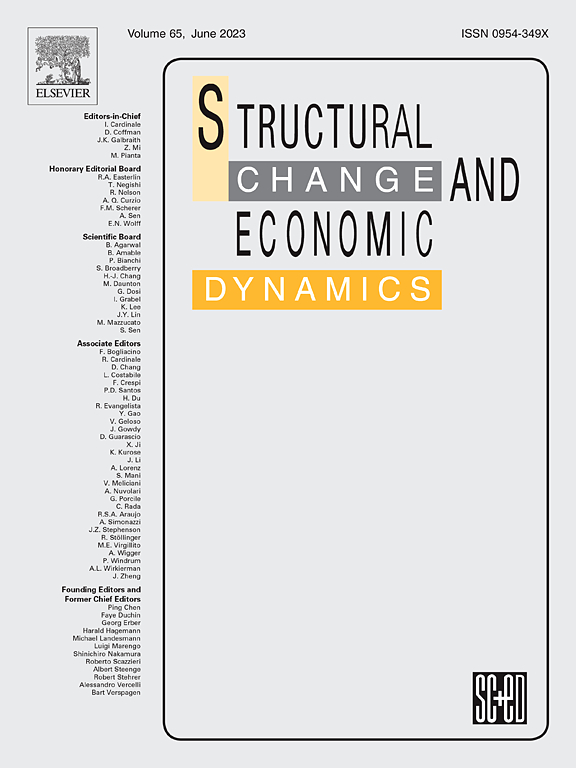拉丁美洲按性别划分的实际有效汇率冲击和工作质量
IF 5.5
2区 经济学
Q1 ECONOMICS
引用次数: 0
摘要
尽管在妇女教育、劳动力参与和健康成果方面取得了重大进展,但在拉丁美洲,按性别划分的劳动力市场隔离仍然存在,对性别平等产生了负面影响。本文分析了需求方面对这一现象的解释,重点研究了该地区实际有效汇率(REER)对性别工作质量的影响。性别隔离是工作质量性别分布的核心,工作质量是根据职业的工资相对于全国工资中位数来定义的。将微观层面的调查小组与1991年至2018年期间15个拉丁美洲国家的宏观经济数据相结合,我们使用广义差中差模型来绘制REER冲击如何影响女性和男性获得好工作的情况。我们认为,REER冲击改变了GDP的部门构成,由于高度的垂直和水平隔离,这影响了性别平等。结果表明,中等升值冲击与男性良好工作份额的下降有关,这提高了性别平等,但这是通过一种“逐底竞争”的动态,而不是女性爬到顶层的表现。尽管整个区域都采取了与实际汇率升值有关的宏观经济政策,但更大的升值冲击是罕见的,而且往往会增加妇女的好工作份额。非常大的贬值冲击与女性良好工作份额的增加和男性良好工作份额的大幅下降有关,导致女性在良好工作中的相对份额上升。这些结果表明了新的政策挑战和需要对性别问题有认识的宏观经济政策分析。本文章由计算机程序翻译,如有差异,请以英文原文为准。
Real effective exchange rate shocks and job quality by gender in Latin America
Despite significant improvements in women's education, labor force participation, and health outcomes, labor market segregation by gender persists in Latin America, with negative consequences for gender equality. Our paper analyzes demand-side explanations for this phenomenon, focusing on the impact of real effective exchange rates (REER) on job quality by gender in the region. Gender segregation is central to the gender distribution of job quality, which is defined in terms of an occupation's wage relative to the national median wage. Combining a panel of micro-level surveys with macroeconomic data from 15 Latin American countries between 1991–2018, we use a generalized difference-in-difference model to map how REER shocks impact the availability of good jobs for women and men. We argue that REER shocks change the sectoral composition of GDP, which impacts gender equality due to high vertical and horizontal segregation. Results indicate that medium appreciation shocks are associated with a decline in men's good job share, raising gender equality but through a “race-to-the-bottom” dynamic rather than as a manifestation of women's climb to the top. Despite the adoption of macroeconomic policies associated with appreciated real exchange rates throughout the region, larger appreciation shocks are rare and tend to increase women's good job share. Very large depreciation shocks are associated with an increase in women's good job share and a greater-than-proportional decrease in men's good job share, resulting in a rise in women's relative share of good jobs. These results point to new policy challenges and the need for gender-aware macroeconomic policy analysis.
求助全文
通过发布文献求助,成功后即可免费获取论文全文。
去求助
来源期刊

Structural Change and Economic Dynamics
ECONOMICS-
CiteScore
9.60
自引率
4.90%
发文量
159
期刊介绍:
Structural Change and Economic Dynamics publishes articles about theoretical, applied and methodological aspects of structural change in economic systems. The journal publishes work analysing dynamics and structural breaks in economic, technological, behavioural and institutional patterns.
 求助内容:
求助内容: 应助结果提醒方式:
应助结果提醒方式:


